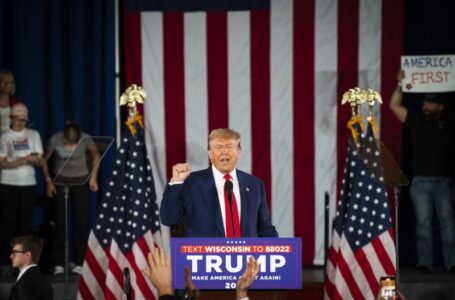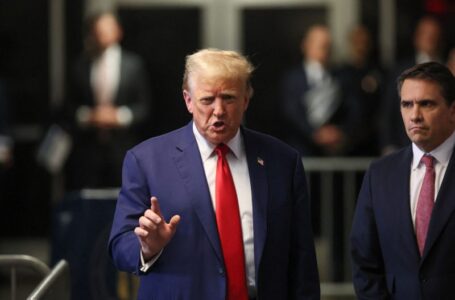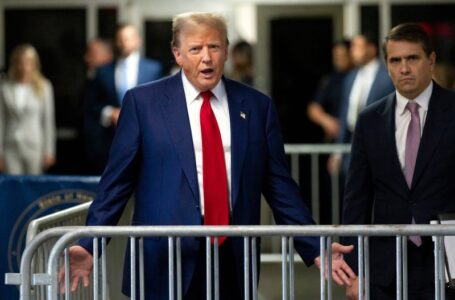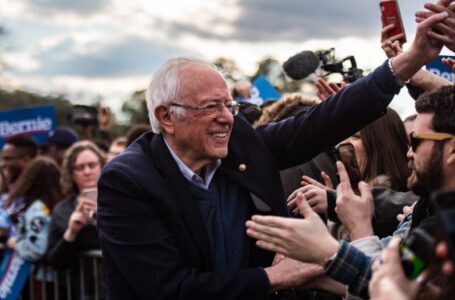Trump mocks Sen. Tester’s weight, hints at a Montana campaign appearance
Trump asks Supreme Court to keep his name on Colorado ballot
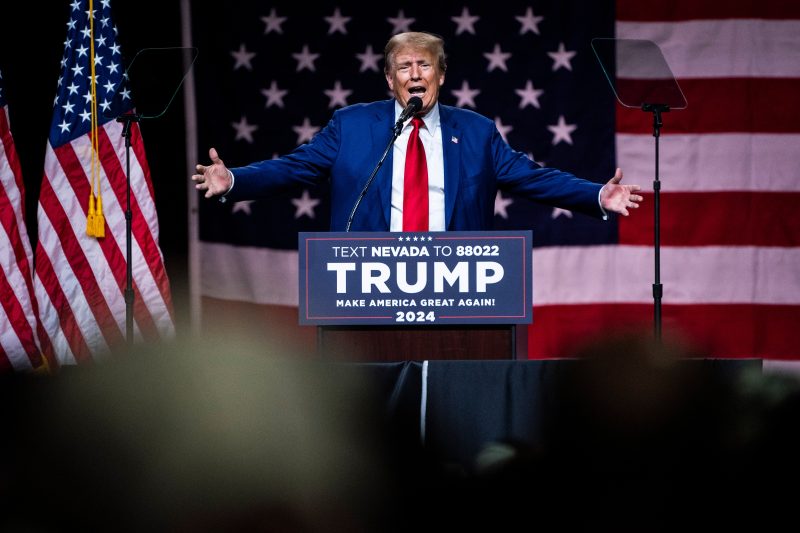

Donald Trump asked the U.S. Supreme Court on Wednesday to ensure he can appear on primary ballots across the country by invalidating a ruling from Colorado’s top court that said Trump is ineligible to serve as president again.
Last month, the Colorado Supreme Court concluded that Trump engaged in an insurrection before and during the Jan. 6, 2021, attack on the U.S. Capitol and as a result could not appear on the state’s primary ballot. It marked the first time a court said a candidate could be removed from the ballot based on a post-Civil War provision of the U.S. Constitution that bars insurrectionists from holding office.
Last week, Maine’s secretary of state announced Trump would be barred from that primary ballot, as well — a decision that Trump has appealed in state court and could make its way to the U.S. Supreme Court.
Both states temporarily put their decisions to keep Trump off the ballot on hold so they can be appealed.
In Wednesday’s filing, Trump’s lawyers urged the justices to quickly reverse the ruling of Colorado’s top court and “return the right to vote for their candidate of choice to the voters.” Judges, they said, should not be allowed to prevent voters from casting ballots for the leading Republican presidential candidate.
Under the Colorado decision, which is also the focus of a separate appeal filed by the Colorado Republican Party, the former president’s name will remain on the primary ballot until the U.S. Supreme Court takes action. In Maine, Trump’s name will stay on the primary ballot until a state judge reviews the issue.
Both states hold their primaries on Super Tuesday, March 5, but ballots must be printed well before then. Under federal law, ballots for military and overseas voters must be mailed by Jan. 20, and ballots for other voters must be available a few weeks later.
Trump, the 2024 GOP front-runner, has said it is undemocratic for a court or state official to keep him from running. The former president has been charged in federal and state court in connection with his efforts to block Joe Biden’s 2020 election victory. But those criminal trials have not happened yet, and neither case charges him with insurrection. He has pleaded not guilty in both cases.
Challenges to Trump’s eligibility for office, related to his efforts to overturn the election results, have been filed around the country. The highest courts in Michigan and Minnesota have allowed Trump to appear on the ballot in those states. Other cases are pending, including one before Oregon’s top court.
The U.S. Supreme Court is not obligated to take the Colorado case, but the justices are likely to intervene in such a consequential matter. Legal scholars and election officials have urged the court to quickly settle the issue so all states follow the same policies.
The justices can respond to the appeals from Trump and the Colorado Republican Party at any time, and the voters who brought the Colorado ballot challenge have told the court that there is no time to waste. They asked the justices to consider taking the appeal when they meet Friday at one of their regularly scheduled private conferences, and to issue a decision by Feb. 11, the day before ballots are mailed to most voters in the state.
“If this Court does not step in now, it risks millions of voters casting ballots for Trump in states where he appears on the ballot, only to find out later that he is disqualified. Clarity that only this Court can provide is needed and needed soon,” attorneys for the voters wrote in a brief filed Tuesday.
The Colorado case is one of several novel and significant questions before the U.S. Supreme Court that have the potential to dramatically impact this year’s presidential election. The court has said it will examine the validity of a law used to charge people, including Trump, in connection with efforts to overturn the 2020 election results or the Jan. 6, 2020, attack. Trump’s claim that he is protected by presidential immunity from prosecution for alleged election interference is also likely to reach the high court after review by an appeals court that will hear oral arguments on Tuesday.
The 14th Amendment to the Constitution, central to the Colorado case, was adopted in 1868, three years after the end of the Civil War. The amendment provided citizenship to those born or naturalized in the United States and guaranteed equal protection of the law to all, including those who had been enslaved. Section 3 of the amendment prevented people from holding office if they “engaged in insurrection or rebellion” after swearing an oath to support the Constitution.
Initially, the provision was meant to keep former Confederates from returning to power. But Trump’s opponents cited it as a reason the former president could not run for office again. They filed challenges across the country, but so far they have prevailed only in Colorado and Maine.
In their appeal, Trump’s lawyers said individual states have no authority to enforce Section 3.
“Allowing each of the 51 jurisdictions to prescribe and enforce their own qualifications for a nationwide office would be a recipe for bedlam and voter confusion,” they told the justices.
Trump’s legal team characterized the Colorado decision as an outlier, noting that other courts have rejected similar challenges. Allowing the Colorado decision to stand, Trump’s lawyers said, would “unconstitutionally disenfranchise millions of voters in Colorado and likely be used as a template to disenfranchise tens of millions of voters nationwide.” They argued that Maine’s secretary of state has “already used the Colorado proceedings as justification for unlawfully striking President Trump from that state’s ballot.”
In separate filings, the Colorado voters who challenged Trump’s eligibility and Colorado’s secretary of state asked the Supreme Court to limit its review to two questions: whether Section 3 applies to former presidents and whether states can enforce Section 3 without the passage of federal legislation.
Colorado Secretary of State Jena Griswold (D) has said she believes Trump is an insurrectionist but will put Trump’s name on the ballot unless the Supreme Court tells her she should not. She called for a swift decision.
“Coloradans — and the American people — deserve clarity on whether someone who engaged in insurrection may run for the country’s highest office,” she said in a written statement.
The Colorado voters filed their lawsuit with the help of Citizens for Responsibility and Ethics in Washington. That group’s president, Noah Bookbinder, said it is reviewing Trump’s appeal and will file a response on Thursday “to ensure the Colorado Supreme Court’s historic ruling stands.”
Trump’s opponents have said the Constitution’s prohibition on allowing insurrectionists to serve in office is clear. The former president alone is responsible for sidelining himself from another run for office, they have said, because he summoned his supporters to Washington and told them to march to the U.S. Capitol and “fight like hell” just as Congress was meeting to certify Joe Biden’s election victory.
Trump was impeached by the House of Representatives for inciting an insurrection but was acquitted in the Senate. He is criminally charged in federal court in Washington, D.C., with four counts: conspiring to defraud the United States, conspiring to obstruct an official proceeding, obstructing a congressional proceeding and conspiracy against rights, in this case the right to vote. But special counsel Jack Smith has not charged him with insurrection.
The former president also has been indicted on state charges in Georgia in connection with his efforts to block Biden’s victory there.

